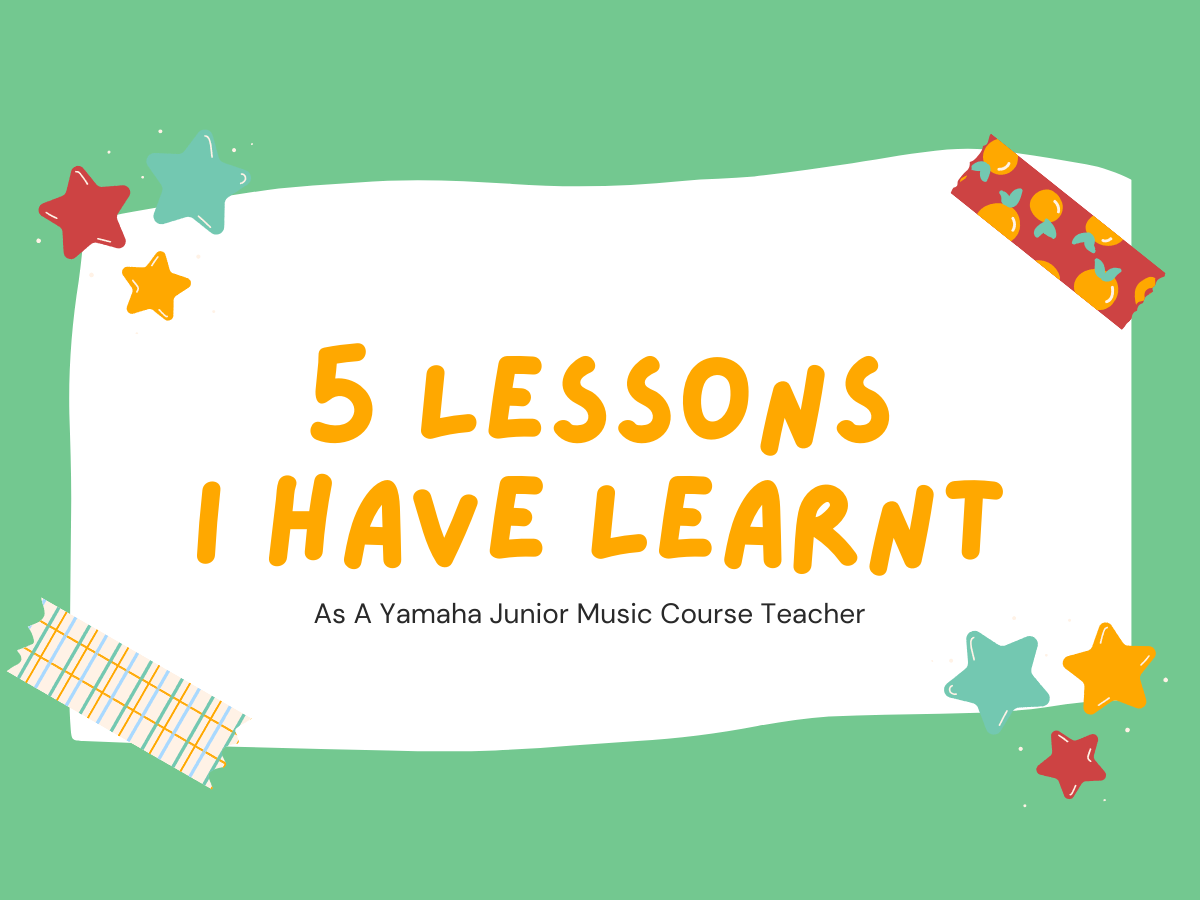2024 marked my 2 years milestone since I’ve stepped out from my Mass Communication background and ventured into music teaching. I joined Yamaha Music and started teaching my first Junior Music Course group class in January 2022, and soon after, my second group class in July 2022, and my third in January 2023.
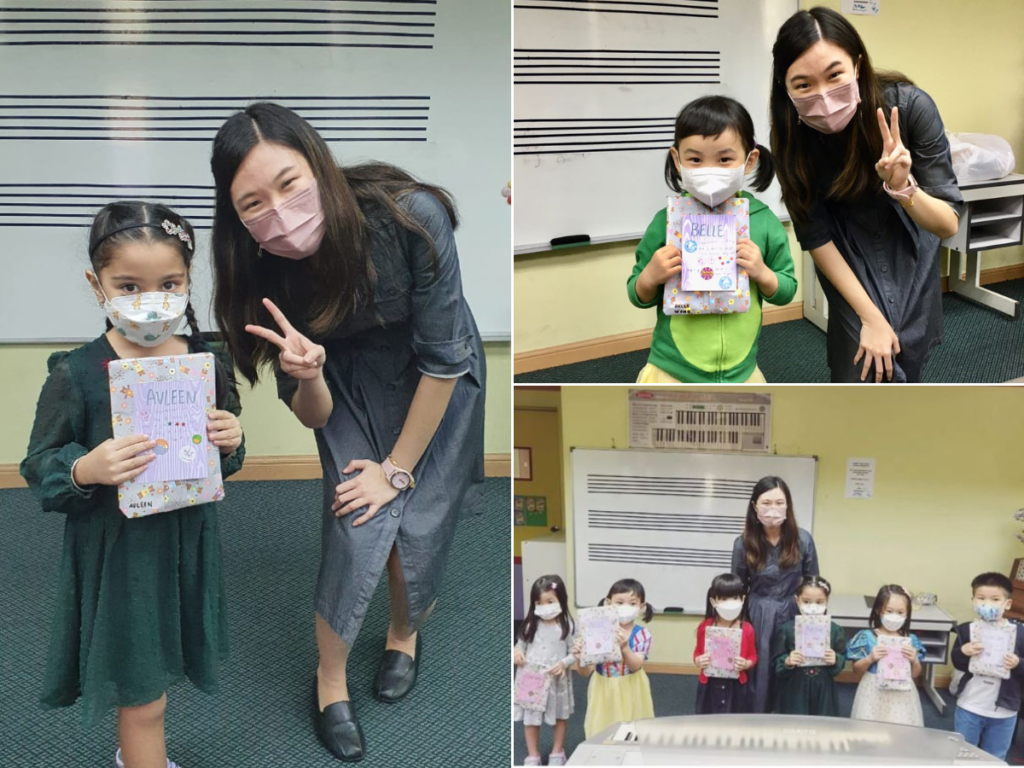
The starting years are definitely one where I treasured the most! Coming from a classical music background, transitioning to Yamaha Music was fairly new to me. It took me a lot of practicing (and yes, that even meant doing mock teaching in an empty classroom ;)), and a lot of time spent learning pedagogical skills. Nevertheless, teaching had brought a lot of fulfilment to my career. And I’d love to share these 5 Lessons I have Learnt as a new teacher with you 🙂
1. Have Self Compassion
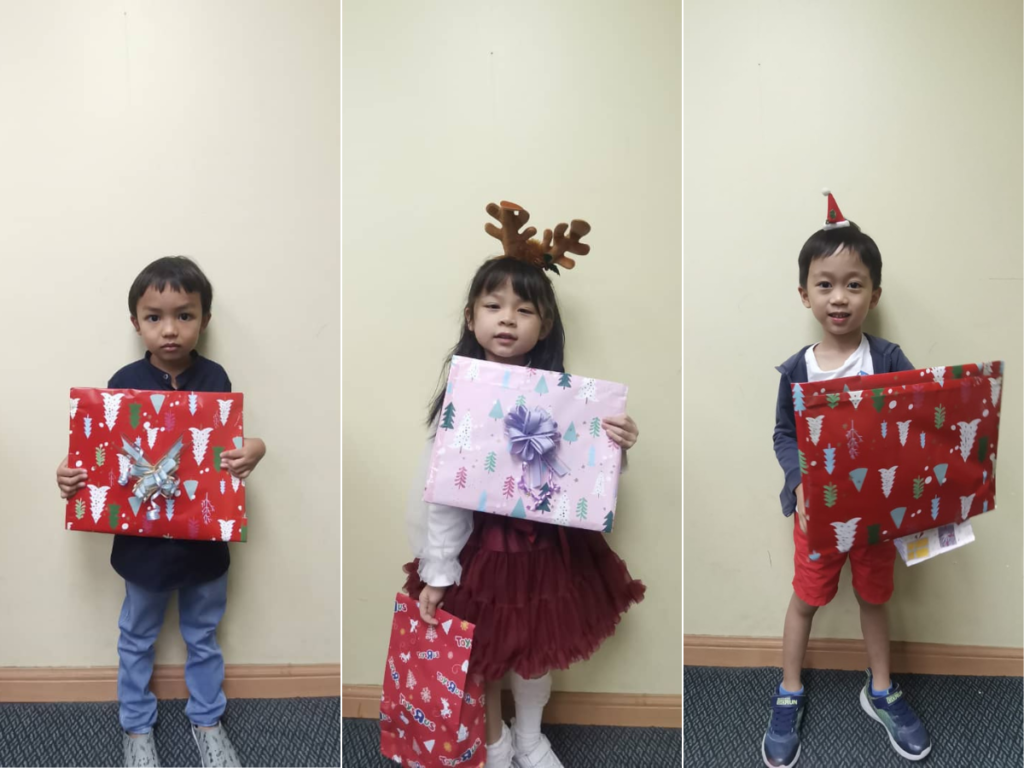
If you’re just starting out as an educator (like me!), it’s very easy to fall into a spiral of: “What went wrong”, or “I could’ve done better” after every lesson we conduct. I have learnt that it is important to manage our expectations not just on our students, but also on ourselves. We can do the best lesson plans, but often, the outcome could be very different, and we’ll need to learn to adapt to changes.
“Success is not final, failure is not fatal: it is the courage to continue that count.” – Winston Churchill
Mistakes are inevitable. As a new teacher, I’ve learn to have self-compassion and embrace the journey. One of the things I try to practice for myself is to list out one or two things that I’m thankful of after each lesson. I realised that the things that makes me smile are the little things like when my children hold my hand, or when they tell me about what they did at home with Papa and Mama, or when they tell me I’m beautiful.
2. Be Yourself
I’ve always pictured a good teacher as one that is strict, fierce, and commanding. It is definitely a work in progress for me to speak up and voice up more: both in my own personal life, and professionally. Getting remarks like: “I’m not sure if you can do it. Being a teacher, you need to be more vocal,” sometimes do get me down. But, I realised my strength comes in being compassionate, patient, and empathetic.
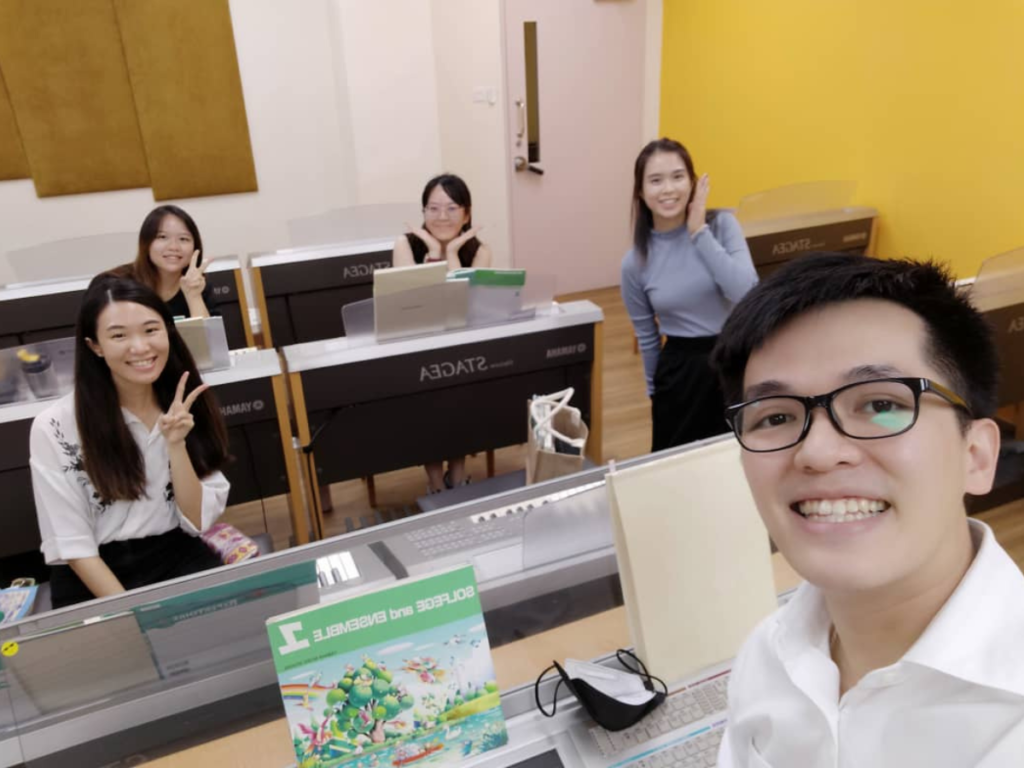
As I was talking to a friend (who is also a teacher!) about my struggles, she encouraged me not to neglect my strengths because it is hard to re-learn again if you neglect it. As a new teacher, I thought that we need to mimic other teachers, but our trainers often tells us to just be ourselves. It takes time to discover what teaching styles suit you. Observing how other teachers teach and ‘copying’ their techniques as a start is great as you slowly discover what works for you and what doesn’t.
Try listing down what are your strengths and weaknesses 🙂 Work on your weaknesses but do not forget your strengths too!
3. Research on Class Management Skills
Stepping into the education field is very new to me as I previously come from a Mass Communication background. I’ve learnt that delivering your lesson plans well is as important as planning a good lesson plan infront of the computer. As a new teacher, it’s important to know your student’s learning styles, effective teacher language & cues, and values you hold as a teacher.
From blog posts to podcasts, there are plenty of online resources available out there which you can find out more about Class Management Skills. Here are some of my favourites:
- Elemental Conversations with Victoria Boler
- The Radiant Spectrum
- Responsive Classroom
- WunderKeys
- Classroom 200
4. Respond, Not React
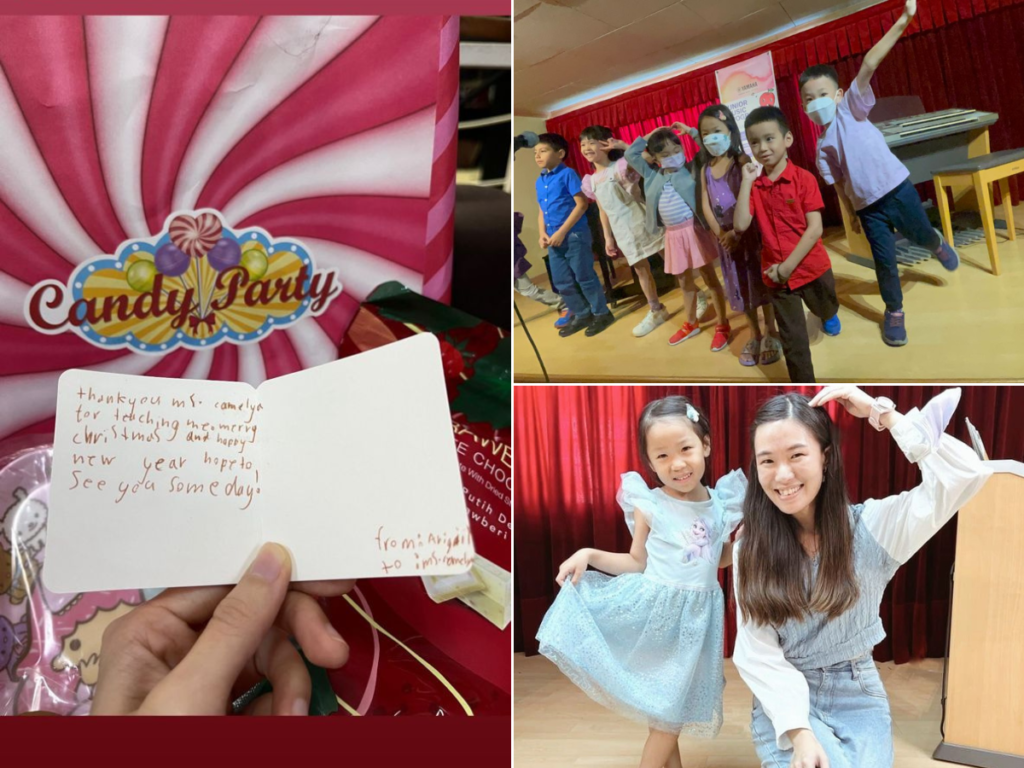
Imagine a classroom where each student are playing different things, and nobody is responding when you say: “Children, look here,” from the front. I remembered being very frustrated and I started having an angry expression on my face, and calling out students who were being “disobedient”.
After that lesson, I felt really bad for embarrassing and singling out that particular student who I had thought was not listening in class. I apologized to the student and also to the parent. From that experience, I learnt to not react to my emotions as I teach. Often times when we feel frustrated, I realized that the frustration comes from students not meeting our expectations.
It is important to learn to respond, and not react when difficult feelings arises. Take a step back and ask: “Why am I feeling frustrated?”
Maybe you can change the way you plan your lessons, or observe: is it only one student who could not achieve your lesson goals for the day or is it the entire class? Maybe you might need to lower down your expectations – after all, these students are only children starting out to learn music!
I find it helpful to use Classroom Cues to manage a difficult class. For example, if your students are distracted, instead of shouting at the top of your lungs: “Listen!”, try saying: “COOKIES!” and have the student to say: “Yum, Yum, Yum!”. That way, each time you say “COOKIES!”, it will catch your students’ attention. Or, incorporate fun, physical, movements like “Students, let’s tip-toe to the piano!” when you want your students to come to the front.
5. Enjoy The Journey
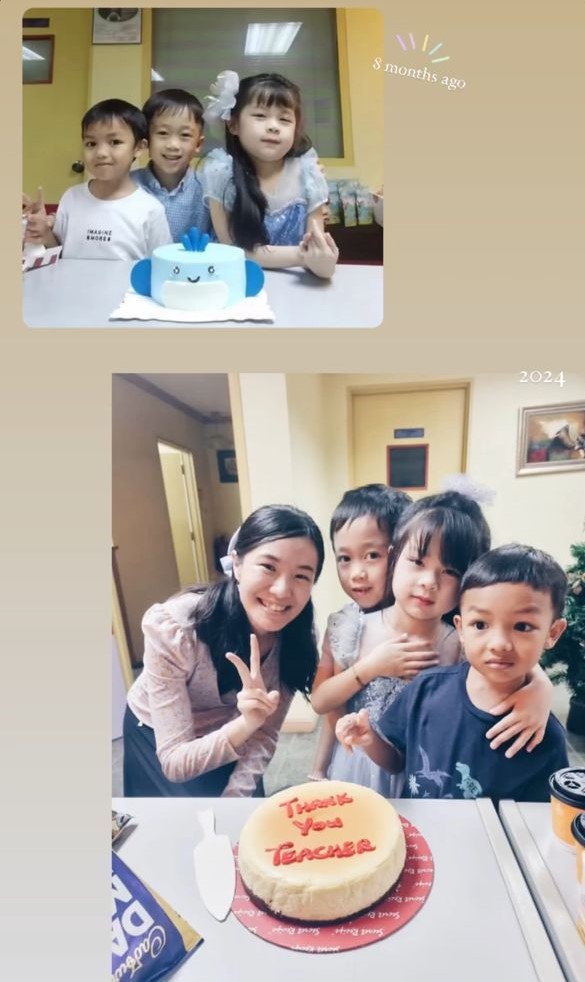
It is easy to feel anxious as a new teacher: you’re busy worrying if you might say the wrong things, or if you can finish teaching a syllabus. I must say, 2 years really flew right by. My 4 year-old students are now turning 6 – I can’t believe that they had been with me for 2 whole years. Seeing how they have grown up as an individual, and how their music skills have grown have really touched me and taught me to slow down and enjoy the journey. Learn to be present with your students each lesson, and make meaningful connections. Most important, learn to enjoy this process as a new music teacher as you keep discovering, and grow your skillsets as an educator.
What are some of your most memorable experiences as an educator? Share it with me in the comments below 😊
